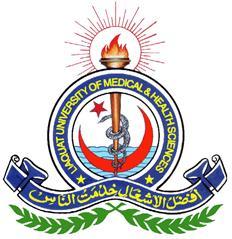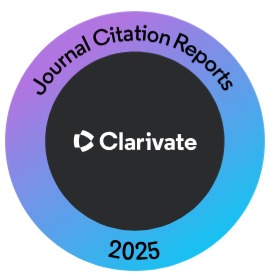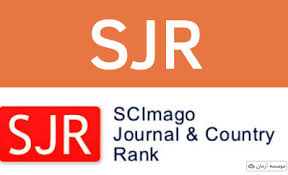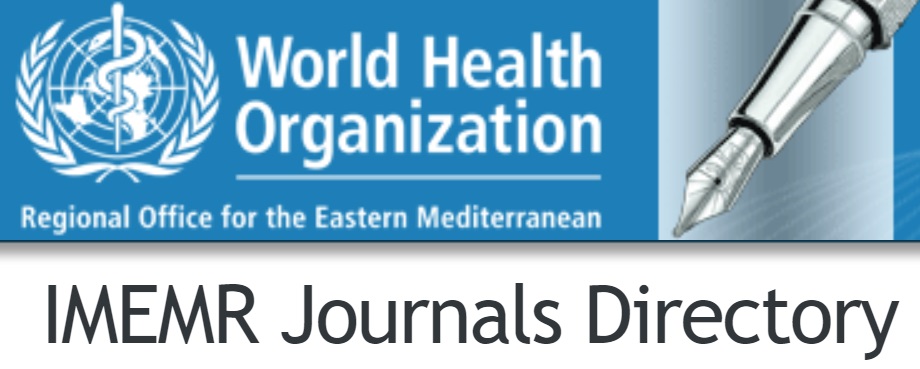High-grade Astrocytoma is Associated with Significant Expression of the Wilms Tumor Gene (WT-1) Protein
Keywords:
Astrocytoma, brain tumor, WT-1, Tumor Grade, Wilms Tumor-1, ImmunoexpressionAbstract
OBJECTIVE: To investigate the association between different astrocytoma grades and WT-1gene protein immunoexpression at the Pathology Department of a tertiary care hospital.
METHODOLOGY: In this cross-sectional study, sixty biopsies of Astrocytoma were incorporated using non-probability convenience sampling. All cases of various grades of Astrocytoma received in the Department of Pathology, Basic Medical Sciences Institute, JPMC, Karachi, from January 2019 to December 2022, were thoroughly reviewed and included in this research. Biopsy samples with an insufficient amount of material, metastatic Carcinoma and CNS tumors other than Astrocytoma were excluded. Results were analyzed using IBM-SPSS version 23.0. The Pearson Chi-Square test of independence was applied, and P-values less than 0.05 were considered significant.
RESULTS: A total of 60 cases of astrocytomas were immunostained for WT-1. Of the 56 samples, 93.3 percent had positive WT-1 cytoplasmic immunostaining. A statistically significant correlation (p < 0.001) was found between the WT-1 score and tumour grade, with low-grade (grades I and II) astrocytomas scoring lower and high-grade (grades III and IV) astrocytomas scoring higher.
CONCLUSION: The research confirms WT-1's role in astrocytoma carcinogenesis and aims to assess its expression across different histological grades. Low expression correlates with lower tumour grades, while high expression indicates higher tumour grades. WT-1 can help distinguish between grades, making it a useful immunohistochemical marker. Its frequent expression in astrocytic tumors supports its potential in immunotherapy, aiding in the identification of candidates for targeted treatment. WT-1 regulates key cellular processes, making it a promising target for improving treatment outcomes in astrocytoma patients.
References
Akramov NR, Shavaliev RF, Osipova IV. New mutation in WT1 gene in a boy with an incomplete form of Denys-Drash syndrome: A CARE-compliant case report. Medicine. 2021; 100(19).
Pan X, Mengge G, Wang K, Wang Y, Kong J, Sun Y et al. Prognostic impact of WT1 mutation on AML of different risk groups based on 2022 European Leukemianet (ELN) risk classification. Blood. 2022; 140(Suppl 1): 3216-3217.
Ferrari M, Watanabe A, da Silva TE, Gomes NL, Batista RL, Nishi MY et al. WT1 pathogenic variants are associated with a broad spectrum of differences in sex development phenotypes and heterogeneous progression of renal disease. Sexual Development. 2022; 16(1): 46-54.
Chen M, Cen C, Wang N, Shen Z, Wang M, Liu B, Gao F. The functions of Wt1 in mouse gonad development and somatic cells differentiation. Biology Reprod. 2022; 107(1): 269-274.
Gülten G, Yalç?n N, Baltalarl B, Do?u G, Acar F, Do?ruel Y. The importance of IDH1, ATRX and WT-1 mutations in glioblastoma. Polish J Pathology. 2020; 71(2): 127-137.
Salvatorelli L, Calabrese G, Parenti R, Vecchio GM, Puzzo L, Caltabiano R, Magro G. Immunohistochemical expression of Wilms' Tumor 1 protein in human tissues: from ontogenesis to neoplastic tissues. Appl Sci. 2019; 10(1): 40.
Kurdi M, Butt NS, Baeesa S, Kuerban A, Maghrabi Y, Bardeesi A, Hakamy S. Sensitivity Assessment of Wilms Tumor Gene (WT1) Expression in Glioblastoma using qPCR and Immunohistochemistry and its Association with IDH1 Mutation and Recurrence Interval. Biologics. 2021; 15: 289-297. doi: 10.2147/BTT.S323358.
D’Aprile S, Denaro S, Pavone AM, Alberghina C, Torrisi F, Volti GL et al. From physiological to neoplastic transformation: the critical roles of connexins and wt1. Euro Mediter Biomed J. 2022; 17(12): 48-58.
Torban E, Goodyer P. Wilms' tumor gene 1: lessons from the interface between kidney development and cancer. Am J Physiol Renal Physiol. 2024; 326(1): F3-F19.
Olsen HE, Lynn GM, Valdes PA, Cerecedo Lopez CD, Ishizuka AS, Arnaout O et al. Therapeutic cancer vaccines for pediatric malignancies: advances, challenges, and emerging technologies. Neuro-Oncology Advances. 2021; 3(1): vdab027.
Najafi M, Jahanbakhshi A, Finocchi Ghersi S, Giaccherini L, Botti A, Cavallieri F et al. Clinical effects of immuno-oncology therapy on glioblastoma patients: A systematic review. Brain Sciences. 2023; 13(2): 159.
Manocha A, Jain S. WT1 in astrocytomas: Comprehensive evaluation of immunohistochemical expression and its potential utility in different histological grades. Indian J Cancer. 2019; 56(3): 197-201. doi: 10.4103/ijc.IJC_51_18.
Rauscher J, Beschorner R, Gierke M, Bisdas S, Braun C, Ebner FH et al. WT1 expression increases with malignancy and indicates unfavourable outcome in Astrocytoma. J Clin Pathol. 2014; 67(7): 556-61.
Yokota C, Nakata J, Takano K, Nakajima H, Hayashibara H, Minagawa H et al. Distinct difference in tumor-infiltrating immune cells between Wilms' tumor gene 1 peptide vaccine and anti-programmed cell death-1 antibody therapies. Neuro-Oncology Advances. 2021; 3(1): vdab091.
Kabir E, Dewan MK, Nahar R, Afroz S, Rahman S, Islam T et al. Immunoexpression of WT1 in Astrocytoma and its Correlation with Histopathological Grade. J Histopathol Cytopathology. 2024; 8(1): 19-30.
Oji Y, Suzuki T, Nakano Y, Maruno M, Nakatsuka SI, Jomgeow T et al. Overexpression of the Wilms' tumor gene WT1 in primary astrocytic tumors. Cancer Science. 2004; 95(10): 822-7.
Schittenhelm J, Beschorner R, Simon P, Tabatabai G, Herrmann C, Schlaszus H. Diagnostic value of WT1 in neuroepithelial tumours. Neuropathology and applied neurobiology. 2009; 35(1): 69-81.
Bassam AM, Abdel-Salam LO, Khairy D. WT1 Expression in glial tumors: Its possible role in angiogenesis and prognosis. Academic J Cancer Res. 2014; 7: 50-8.
Mahzouni P, Meghdadi Z. WT1 protein expression in astrocytic tumors and its relationship with cellular proliferation index. Adv Biomed Res. 2013; 2(1): 33.
Downloads
Published
How to Cite
Issue
Section
License
Copyright (c) 2025 Journal of Liaquat University of Medical & Health Sciences

This work is licensed under a Creative Commons Attribution-NonCommercial-ShareAlike 4.0 International License.
Submission of a manuscript to the journal implies that all authors have read and agreed to the content of the undertaking form or the Terms and Conditions.
When an article is accepted for publication, the author(s) retain the copyright and are required to grant the publisher the right of first publication and other non-exclusive publishing rights to JLUMHS.
Articles published in the Journal of Liaquat University of Medical & health sciences are open access articles under a Creative Commons Attribution-Noncommercial - Share Alike 4.0 License. This license permits use, distribution and reproduction in any medium; provided the original work is properly cited and initial publication in this journal. This is in accordance with the BOAI definition of open access. In addition to that users are allowed to remix, tweak and build upon the work non-commercially as long as appropriate credit is given and the new creations are licensed under the identical terms. Or, in certain cases it can be stated that all articles and content there in are published under creative commons license unless stated otherwise.























